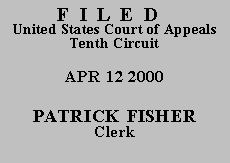

| LEO SIMMONS,
vs.
JOHN SUTHERS |
|
Although the district court did not recite a particular legal basis for its order, we treat the dismissal as one under 28 U.S.C. § 1915(e)(2)(B)(ii) (district court can dismiss action which "fails to state a claim on which relief may be granted."). Review is de novo, see Perkins v. Kansas Dept. of Corrections, 165 F.3d 803, 806 (10th Cir. 1999), and because Mr. Simmons is appearing pro se, we construe his pleadings liberally. Haines v. Kerner, 404 U.S. 519, 520-21 (1972).
A thorough review of the complaint demonstrates that the district court was correct in dismissing the action. Mr. Simmons vaguely asserts that he suffers from numerous medical problems for which he has been receiving inadequate treatment from the Colorado Department of Corrections. He also claims that false reports were filed relating to his failure to work because of his medical problems. Although various deficiencies were specifically pointed out in the court's August 13, 1999 order directing Mr. Simmons to amend the complaint, Mr. Simmons chose not to amend but directed the court to "see [the] initial claim." There was no error in dismissing the complaint.
The motion to proceed in forma pauperis is DENIED and the appeal is DISMISSED.
Entered for the Court
Paul J. Kelly, Jr.
Circuit Judge
*. This order and judgment is not binding precedent, except under the doctrines of law of the case, res judicata, and collateral estoppel. This court generally disfavors the citation of orders and judgments; nevertheless, an order and judgment may be cited under the terms and conditions of 10th Cir. R. 36.3.
**. After examining the briefs and the appellate record, this three-judge panel has determined unanimously that oral argument would not be of material assistance in the determination of this appeal. See Fed. R. App. P. 34(a); 10th Cir. R. 34.1 (G). The cause is therefore ordered submitted without oral argument.